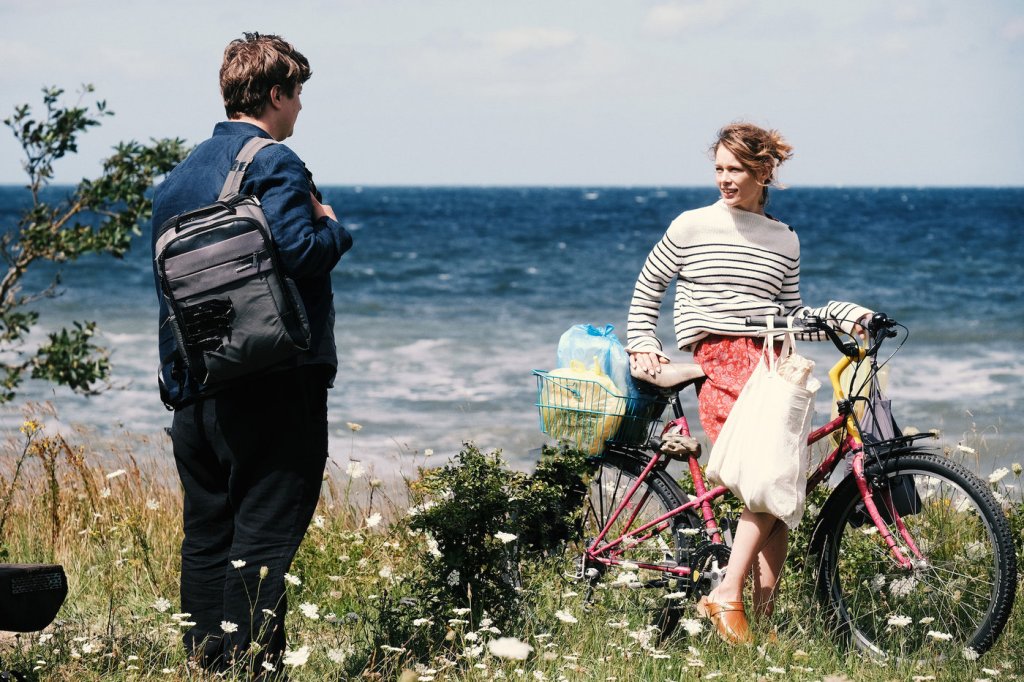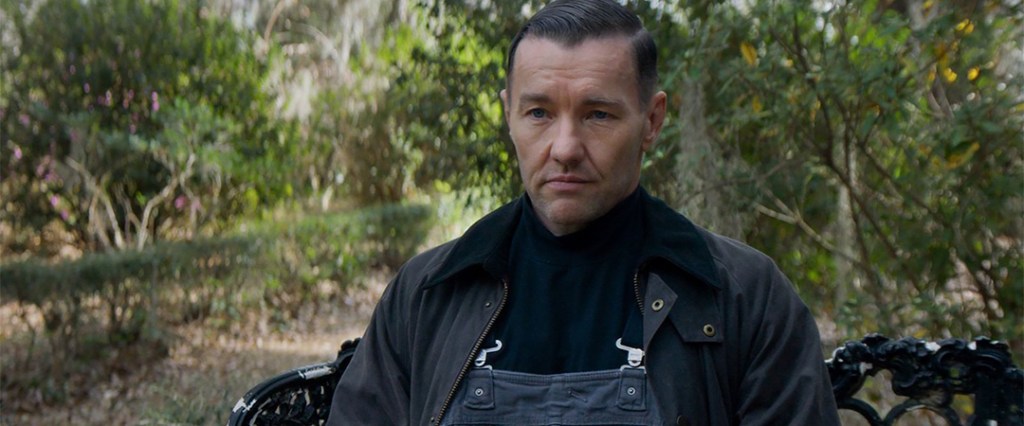
Reviews for the three narrative features I saw at IFFBoston 2023. Go here for reviews of the three documentaries I saw there.
AFIRE
Two young Berliners, Leon (Thomas Schubert), a writer struggling to finish his novel and his friend Felix (Langston Uibel), a photographer, take a trip to a cabin in the woods near the Baltic Sea owned by Felix’s mother. Upon arrival, they discover the cabin’s already been rented to Nadja (Paula Beer), whom they first hear having loud sex in the other bedroom with Devid (Enno Trebs), a hunky lifeguard. As they all get to know each other, Leon’s the only one of the four not having much fun. Easily irritated and often unable to see what’s going on (even when—especially when it’s apparent to everyone else including the viewer), he’s fixated on his book. Meanwhile, persistent wildfires threaten to spread closer to their neck of the woods.
Purportedly the second film in a loose trilogy from writer/director Christian Petzold beginning with 2020’s Undine, this seemingly has little in common with it apart from casting some of the same actors (most notably Beer.) Obviously, this is a “fire” film whereas Undine was a “water” film; however, while the earlier film had some humor threaded throughout its sci-fi/magical realism frame, this one might be Petzold’s most explicitly comedic effort to date. Schubert’s Leon is a bumbling, near-exasperating protagonist, but still a protagonist because he ultimately has a good heart (even if his self-sabotaging behavior often obscures this nature.) His chemistry with Beer is palpable as well, even when it feels like they’re sparring partners. Actually, the whole ensemble is strong, with Uibel and Trebs evolving from second chorus members to the leads in their own story. Matthias Brandt rounds out the cast late in the film as Leon’s older, long-suffering (in multiple senses of the word) editor.
Apart from some ambiguous roughhousing between Leon and Felix, Afire starts off unassumingly, slowly building its relationships and character arcs as the wildfires remain a background threat heard about but only seen via glowing, burnished, distant skies. Like those fires, it’s a slow burn until, all at once, it encompasses everything in its path with dire consequences for some and narrow escapes for others. It’s reminiscent of a Gary Shteyngart novel in that it’s expertly constructed, caustically funny and in the end, tinged with tragedy and the possibility of transformation. Petzold’s built up a noteworthy filmography since 2012’s Barbara and Undine is a dazzling addition to it.

THE EIGHT MOUNTAINS
Pietro and Bruno befriend each other as boys in an isolated region of the Italian Alps. For Pietro and his family, it’s a rustic summer vacation spot, a getaway from Turin; for Bruno, it’s the only home he knows. The boys become close but when Pietro’s family attempts (and fails) to provide Bruno with loftier opportunities, they grow apart. Years later, as adults, they meet again following a death, reconnecting over the construction of a home in the mountains. Over time though, it’s increasingly apparent that the two men are on alternate paths. Their class differences and contrasting approaches to overcoming them inevitably leads towards fractures in their relationship.
This Cannes Jury Prize winner, adapted from a novel and co-directed by the filmmaker of The Broken Circle Breakdown benefits greatly from its natural settings, breathtaking cinematography, evocative sound design and as the adult Pietro, Martin Eden star Luca Marinelli (unrecognizable until he shaves off his beard.) Strip all of this away, however, and you’re left with a standard coming-of-age parable. As the adult Bruno, Alessandro Borghi’s performance is far less dynamic than Marinelli’s and the many bluesy rock songs on its soundtrack by Daniel Norgren blur together before long. Still, some of its set pieces are inspired—the nail-biting mountain hike with the boys and Pietro’s father, the change-of-pace Nepal sequences, the sinister splendor of the Alps in the dead of winter. The Eight Mountains is ostensibly about a friendship but its gradually slanted focus on Pietro’s trajectory rather than Bruno’s is what resonates in the end.

MASTER GARDENER
Paul Schrader has long established a reputation for going there, which is a major component of his sensibility and thus his peculiar appeal. Consequently, his movies work best when centered on a performance that understands how nutso the material is and can bring it across convincingly anyway (definitely Ethan Hawke in First Reformed, not so much Willem Dafoe in Light Sleeper.) As impassioned horticulturist Narval Roth, Australian actor Joel Edgerton is a strong choice because he’s so adept at disappearing into a part. As he did in Loving, he convincingly adopts a specific physical appearance and voice (a plebeian, nearly Noo Yawk accent) that immediately defines his character which makes the eventual reveals about him all the more potent and shocking.
Still, Master Gardener can be more than a little silly and calculated. For a while, after the big reveal occurs, there is a jolt in that it could go in a number of directions. The one it chooses is a redemption-for-an-abhorrent-past narrative, which has been done to death although Edgerton’s commitment to the story and the part does some heavy lifting. Quintessa Swindell is adequate as his young mentee, but as her great-aunt and his employer, Sigourney Weaver is something else: a prickly, wealthy matron out of a classic Hollywood picture that might come off as a caricature without Weaver’s authoritative take on and comfort with the role. Ultimately, it’s her and Edgerton’s presence and ease with being a little nuts keeping Schrader afoot on the tightrope he’s walking (if barely.)